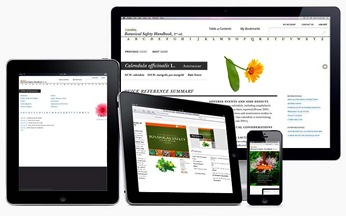 AHPA continues to expand and update the online Botanical Safety Handbook 2nd ed. to provide the herbal industry with comprehensive safety information on over 500 species of herbs from clinical trials, pharmacological and toxicological studies, medical case reports, and historical texts.
AHPA continues to expand and update the online Botanical Safety Handbook 2nd ed. to provide the herbal industry with comprehensive safety information on over 500 species of herbs from clinical trials, pharmacological and toxicological studies, medical case reports, and historical texts.
The latest update added new safety information for 11 entries have been updated:
- Hollyhock (Alcea rosea) was revised to include the flower and seed plant parts, and new animal pharmacology and toxicity studies.
- Lady’s mantle (Alchemilla xanthochlora) was revised to add a cytotoxicity reference.
- Ylang ylang (Canaga odorata) review added a reference for dermal effects.
- Review of Chinese white olive (Canarium album) updated the Latin binomial name and added short-term toxicity studies.
- For bitter orange extract (Citrus aurantium) the safety and interaction classifications were updated and numerous additional scientific references were added in most study categories.
- Dragon’s blood palm (Daemonorops draco) removed the 2d safety classification, and identified an acute toxicity study.
- Review for Wild carrot (Daucus carota) determined no new safety data were available for this botanical.
Dendrobium (Dendrobium nobile) was review to add a subchronic study and genotoxicity studies.
- Review of Digitalis spp. identified several additional case reports for this botanical.
- Review of longan (Dimocarpus longan) determined no new safety data were available for this botanical.
The entry for the botanical marshmallow (Althaea officinalis) has been revised to include historical use as foods or in food products.
Inclusion of detailed information about food use of botanicals provides supplemental information regarding the overall safety for the consumption of individual botanicals. Such information may support a position that a botanical is a food and may be generally recognized as safe through experience based on common use in food under numerous conditions of use. Information regarding such use has been drawn from numerous texts, such as guides for the use of native or wild-growing edible and medicinal plants, texts describing regional and cultural uses of edible plants, and cookbooks.
Subscribers to the online Botanical Safety Handbook can review short descriptions of updated entries in the "Revisions" panel on the online version homepage when they log in. AHPA will continue to post additional updates to existing entries as well as new botanical entries the near future. Subscribers will be notified of these updates when they become available.
The online Botanical Safety Handbook is undergoing review of existing entries and the addition of new entries to provide the latest safety information before it can be included in future print editions of the handbook.
AHPA's Botanical Safety Handbook 2nd ed. is an essential tool for anyone who manufactures, recommends, or uses herbal products. It provides safety information on over 500 species of herbs, derived from data compiled from clinical trials, pharmacological and toxicological studies, medical case reports, and historical texts. All entries were reviewed by an Expert Advisory Council that includes some of the most renowned herbal and integrative medicine experts in the United States.